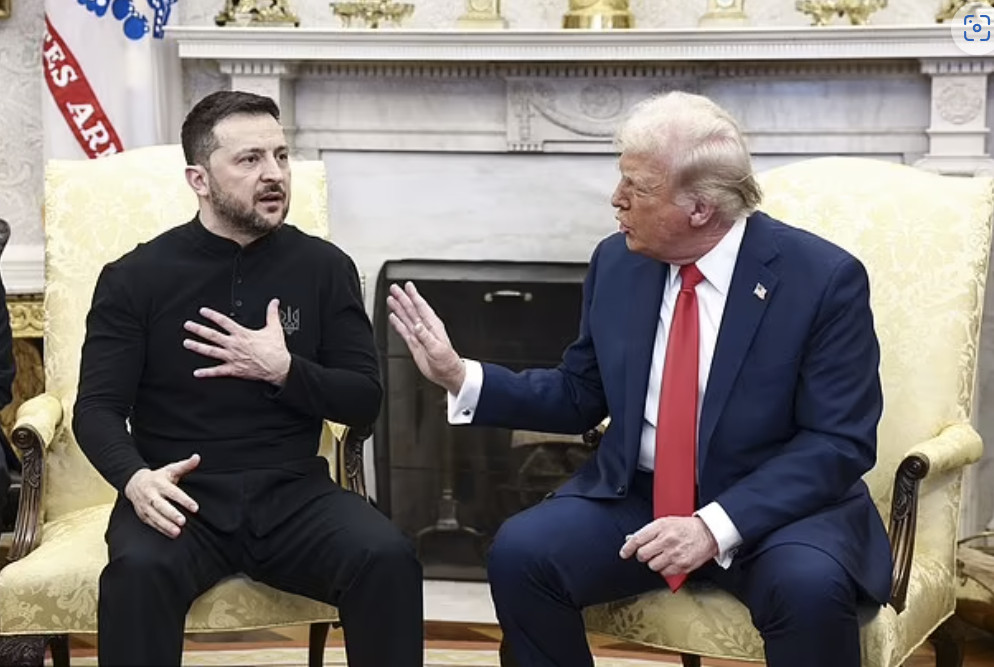I recently received an email extoling the benefits of attending a new ACNA course: Living Isa58, a project of the Matthew 25 Initiative (M25i for those who dislike typing).
There is a lot of what I would consider gobbledegook in the Matthew 25 Initiative. Here, (you have to sign up to read the whole thing) for example:
God’s purposes for this world are not for its destruction, but for its renewal. In the end, shalom is rewoven through all of creation and within all of God’s people. Peacemaking, then, is the work of co-substantiating this hope, the Kingdom of God, with God. It is pursuing justice and the reweaving of shalom with an orientation to healing and repair.
That sounds like what William Buckley used to call immanentizing the eschaton, although the next sentence was included to allay that suspicion:
God leads the work and will accomplish it fully at the final consummation of the new order, when heaven and earth become one. But today we are God’s co-creators: we are given the agency and ability to help put flesh on this coming Kingdom now. In word and deed, it is the very work of declaring the good news of the gospel: that Jesus is King and His Kingdom is at hand.
I remain suspicious and wonder whether the authors remember that Jesus also said “My Kingdom is not of this world”.
Archbishop Steve Wood has recorded a video on the Matthew 25 Initiative:
It was recorded in March and has had 285 views. One of those views was me. Such is the level of interest in what he had to say.
In his video he laments that some of what he says might be interpreted as political whereas, really, it is just the Gospel. He’s right, that is how I interpreted it. I have no problem with clergy venting their political inclinations, I just wish they wouldn’t call it the Gospel.
That’s how the rot set in with TEC and the ACoC.
For more evidence that this is political – generally left-leaning – the M25i’s white paper on peace-making (you have to sign up to see it) quotes a Palestinian theologian Rev. Dr. Mitri Raheb:
“Rev. Dr. Mitri Raheb states, “Hope is what you do.”
I’m not sure what he means by that but, elsewhere, Rev. Dr. Mitri Raheb is perfectly clear and perfectly political: Israel is committing war crimes in Gaza and the solution is political action. He doesn’t mention Hamas or any responsibility it might bear.
From here:
Yet, the more I thought about it, the more I started understanding her answer. In this context of a war crime, committed against the civilian population in Gaza, what is needed is more than prayer; what is needed is advocacy, what is needed is political action, what is needed is for people to go on the streets demanding an end to this aggression.
Similarly an M25i (yes, I know the abbreviation is irritating. It sounds like a UK motorway) white paper on immigration regrets that:
Churches in North America may not always be able to substantially influence public policy or affect changes to current laws that seem unjust, out-dated or contradictory.
The author clearly wants to influence public policy, a position I wouldn’t necessarily quarrel with had his archbishop not claim that it’s all about the Gospel not politics.
To be clear, as individuals I’m all for the Gospel influencing our political choices, but I’m wary when clergy start equating those choices with the Gospel.
Even allowing for the fact that, on occasion, I am given to undue pessimism, none of this looks good for ACNA.


 In a follow-up interview with the Journal, Parker added that he planned, as primate, to continue down the route of change set up by the listening process that brought forth the transformational commitments and the primate’s commission’s pathways—the set of recommendations calling for dramatic change in the church.
In a follow-up interview with the Journal, Parker added that he planned, as primate, to continue down the route of change set up by the listening process that brought forth the transformational commitments and the primate’s commission’s pathways—the set of recommendations calling for dramatic change in the church. Curry also spoke about the limitations of Jesus’ disciples, noting that four of them—Peter, Andrew, James and John—were fishermen, yet never catch any fish in the Bible and relied upon Jesus to feed the multitude.
Curry also spoke about the limitations of Jesus’ disciples, noting that four of them—Peter, Andrew, James and John—were fishermen, yet never catch any fish in the Bible and relied upon Jesus to feed the multitude. Women will no longer be prosecuted for aborting their pregnancies at any point up to birth.
Women will no longer be prosecuted for aborting their pregnancies at any point up to birth. RECENTLY I had the opportunity to watch the documentary 1946: The Mistranslation that Shifted Culture. This movie follows the stories of three individuals whose life experiences lead them to struggle with questions about whether one could be a member of the 2SLGBTQIA+ community and Christian. This search brings these three individuals together and ultimately leads to this project. A key part of this journey was to explore how homoexuality found its way into the Bible. As it happens, the first time the word appears is in the 1946 English translation of the Revised Standard Version (RSV). In developing this edition, the group of 22 white men, chose to combine two words from the original Greek, malakoi and arsinoskoitai, found in 1 Corinthains 6:9-10, to become ‘homosexuality’.
RECENTLY I had the opportunity to watch the documentary 1946: The Mistranslation that Shifted Culture. This movie follows the stories of three individuals whose life experiences lead them to struggle with questions about whether one could be a member of the 2SLGBTQIA+ community and Christian. This search brings these three individuals together and ultimately leads to this project. A key part of this journey was to explore how homoexuality found its way into the Bible. As it happens, the first time the word appears is in the 1946 English translation of the Revised Standard Version (RSV). In developing this edition, the group of 22 white men, chose to combine two words from the original Greek, malakoi and arsinoskoitai, found in 1 Corinthains 6:9-10, to become ‘homosexuality’.
 When Donald Trump narrowly avoided an assassin’s bullet last year, many Christians, and Trump himself, ascribed the near miss to providential intervention. Trump’s ear did not go unscathed, but he rarely seems to listen to anything but his own voice, so it didn’t get much productive use anyway.
When Donald Trump narrowly avoided an assassin’s bullet last year, many Christians, and Trump himself, ascribed the near miss to providential intervention. Trump’s ear did not go unscathed, but he rarely seems to listen to anything but his own voice, so it didn’t get much productive use anyway.
 My mother read Kenneth Grahame’s Wind in the Willows to me when I was a small child. As soon as I could read for myself, I reread it. I’ve reread it numerous times as an adult; it is a wonderful book.
My mother read Kenneth Grahame’s Wind in the Willows to me when I was a small child. As soon as I could read for myself, I reread it. I’ve reread it numerous times as an adult; it is a wonderful book.